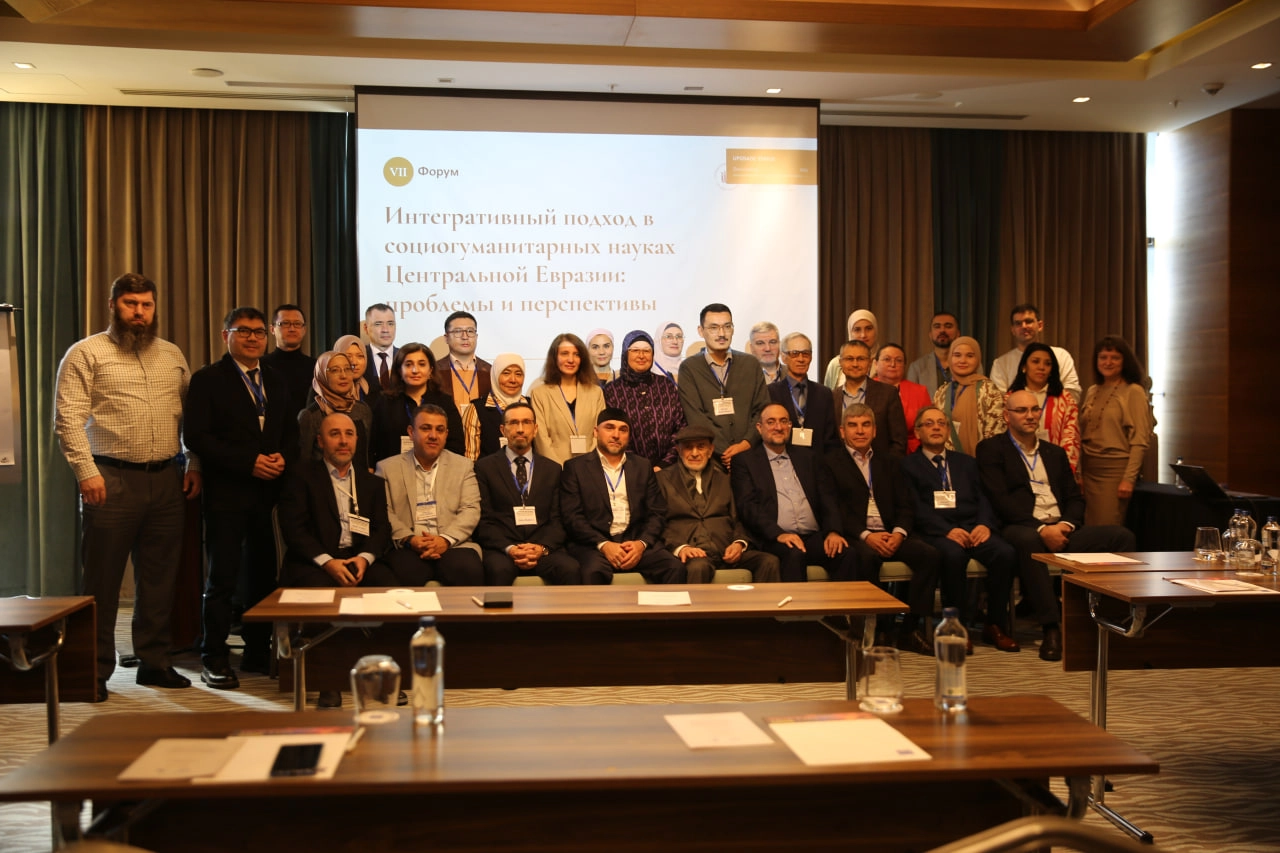The Institute of Knowledge Integration (IKI), in collaboration with the International Institute of Islamic Thought (IIIT), organized the 7th forum on “The Integrated Approach to Social Sciences and Humanities in Central Eurasia: Issues and Perspectives,” in 25-29 October 2024 in Istanbul, Türkiye.
This forum was convened for the seventh time to address various scholarly developments associated with the integration of the Qur’anic worldview, values, and Islamic knowledge into the educational process and research in social sciences and humanities in the Central Eurasian region.
The forum provided an ideal platform for a transdisciplinary exchange among sociologists, scientists, environmentalists, anthropologists, historians, theologians, and social activists native to the region. Participants engaged in discussions regarding the role of Islamic intellectual thought in shaping an integrated paradigm and a value-oriented approach to social sciences and humanities. Additionally, paper presenters explored the potential for implementing the integration of knowledge initiative within regional Islamic and secular educational institutions.
The forum's programme comprised 28 papers delivered across seven panels, a round table discussion, as well as training sessions pertinent to the institute's research and educational initiatives.
Day 1
The inaugural working day of the forum commenced with the Opening Session of the programme, officiated by Dr. Ahmad Totonji, Co-founder and member of the Board of Trustees, the IIIT; Muhammad Totonji, member of the Board of Trustees, the IIIT; Rufat Guliyev, Chairman of the “Idrak” Public Union; and Assoc. Prof. Dr. Gapur Oziev, the Director of the IKI.
Subsequent to the coffee break, a Round Table Discussion on Learning at the Institute of Knowledge Integration took place, featuring five active IKI students - Rozaliya Gabdulkhakova (Uzbekistan), Svetlana Karimova (Bashkortostan, Russia), Diana Iskhakova (Russia), Nadezhda Arkhipova (Russia), and Gulzhamal Jundybayeva (Kazakhstan) - who, under the guidance of Dr. Ildus Rafikov (Maqasid Institute, and IKI instructor), deliberated on the challenges and prospects of their studies at the institute.
During the first panel, held in the afternoon, five distinguished speakers - Galina Miškinienė (Vilnius University, Lithuania), Renat Bekkin (Institute of African Studies of the Russian Academy of Sciences), George Sanikidze (Ilia State University, Georgia), Giorgi Svianadze (International University of Georgia, Georgia), and Ayder Bulatov (Crimean Scientific Centre for Ethno-confessional and Ethno-social Studies, Crimea) - engaged in a profound discourse concerning the complexities faced by Muslim communities in Central Eurasia, particularly focusing on their administration and quest for identity.
Day 2
On the second day, two panels occurred prior to lunch. The first session, titled Islamic Education in a Modern Context, featured four presentations delivered by Zhailoo Mamytbekov (Chairman of the Supreme Council of Young Scientists, Ministry of Education and Science of the Kyrgyz Republic), Aikerim Altaikyzy (Institute of Philosophy, Political Science and Religious Studies, Kazakhstan), Rashid Iskhakov (Director, Initiative School, Moscow; and IKI student), Almaz Ibraev (Co-President of Kyrgyz-Turkish Manas University, Kyrgyzstan).
Subsequent to the coffee break, Oleg Yarosh (Aarhus University, Denmark), Gafgazli Gular (Azerbaijan National Academy of Sciences), and Rouslan Jalil (University of Magdeburg, Germany) deliberated on matters pertaining to Islam and the West within the context of secularism and secularization.
In the afternoon panel, entitled the Qur’anic Worldview, Psychology and Theological Heritage in Central Eurasia, four distinguished speakers - Filius Iakhin (instructor at the IKI), Rezeda Safiullina-Ibragimova (independent researcher), Каmil Nasibullov (International Islamic Academy of Uzbekistan), and Kairygul Dosalieva (Arabaev Kyrgyz State University, Kyrgyzstan; and IKI student) - elucidated the potential of Qur’anic concepts to serve as a nexus between Islamic scholarship and contemporary social and human sciences. They articulated the advantages and challenges associated with the integration of knowledge in current contexts, with the objective of fostering comprehensive educational methodologies.
Following the coffee break, the forum attendees engaged with the keynote address presented by Professor Omar Hasan Kasule, who serves as the Secretary-General and is a member of the Board of Trustees at IIIT. In his address, entitled Prospects for the Implementation of Integration of Knowledge, Kasule discussed the IIIT’s initiative for textbooks development and extended an invitation to scholars in the post-Soviet region to create new educational materials for regional Islamic higher education institutions. These textbooks are anticipated to align with the Qur’anic worldview while also adhering to the policies and priorities of local governments.
Following this, the members of the Research Committee of IKI, Filius Iakhin and Elmira Akhmetova presented the guidelines for research grant applications and also highlighted the recent publications of IKI. A workshop addressing Islamophobia, conducted by Dr. Anas Al Shaikh Ali, a member of the Board of Trustees of IIIT, the UK Office, was held concurrently for IKI students.
Day 3
The final day of the forum commenced with discussions on various issues related to Islam and the potential for advancement among Muslim youth, highlighted in presentations by Sofia Ragozina from the Institute of Oriental Studies at the Russian Academy of Sciences in Moscow, and Magomed Iunusov, the Head of the Movement "Education" in Dagestan.
Subsequently, four esteemed scholars from the region - Ilias Кapiev (an IKI student from Dagestan), Arzu Mammadova (Baku State University, Azerbaijan), Gulmira Achilova (Institute of History at the Academy of Sciences of the Republic of Uzbekistan), and Leyla Almazova (ZMO, Germany) - engaged in a discourse on the phenomenon of Jadidism in Central Eurasia, both historically and in contemporary contexts, with particular emphasis on the integration of secular and religious knowledge.
Following lunch break, five presentations were delivered by Madina Chinloda (A. Orusbaev Institute of Russian Language, B. N. Yeltsin Kyrgyz-Russian Slavic University, Kyrgyzstan), Ildus Rafikov (Vice-President on Research, Maqasid Institute; IKI instructor), Kanat Zhailaubayev (an IKI student; ISIP, Kazakhstan), Ibragim Doskiev (Judge, Constitutional Court of the Republic of Ingushetia; IKI Student), and Elmira Akhmetova (an instructor at the IKI). These presentations explored the integration of knowledge in both theoretical and practical contexts, particularly concerning the research and educational endeavors of the IKI Academy.
The final panel was followed by the closing session. The participants were awarded their certificates of presentation, and a consensus was established to publish selected papers in an educated volume by the IKI Academy.









